In the Mood for Poetry: Nostalgia
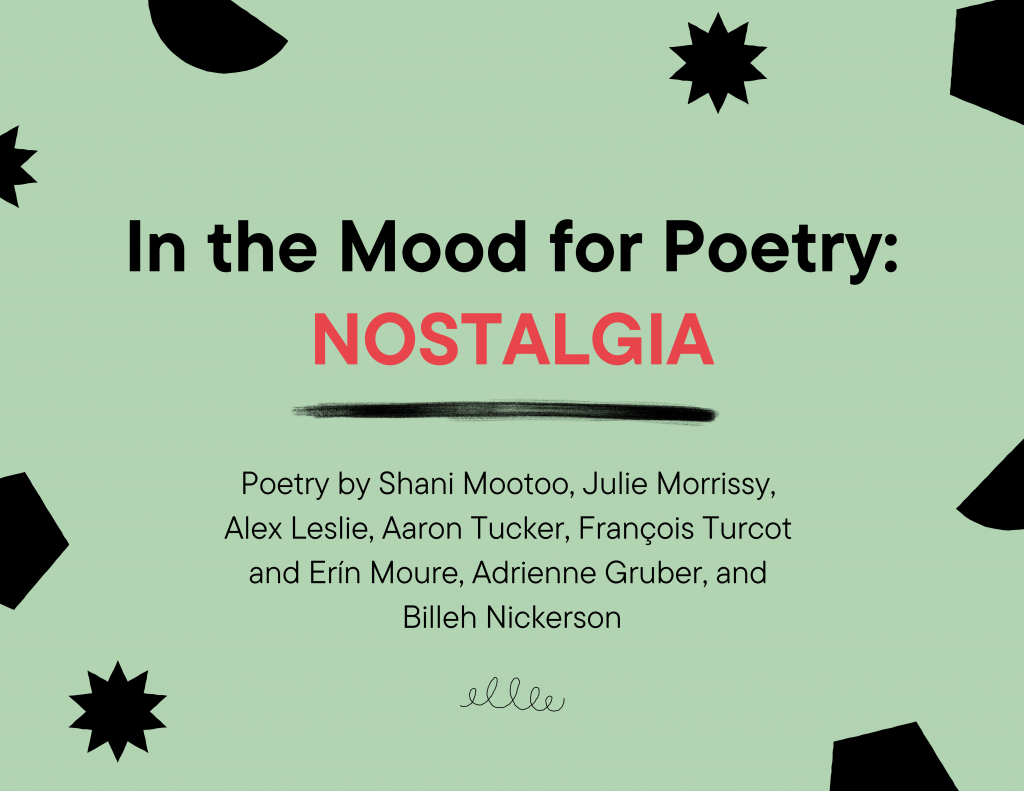
Feeling sentimental? Wistful? Next up in our In the Mood for Poetry series is nostalgia. Lean into the feeling with these poetry collections that map personal and geographical histories, and draw odes to moments lost, longed for, and resurrected. These books are filled with memory traps. They guide author and reader alike through the bittersweet process of reifying one’s deepest reminiscences—finding joy and transport in the irrevocable.
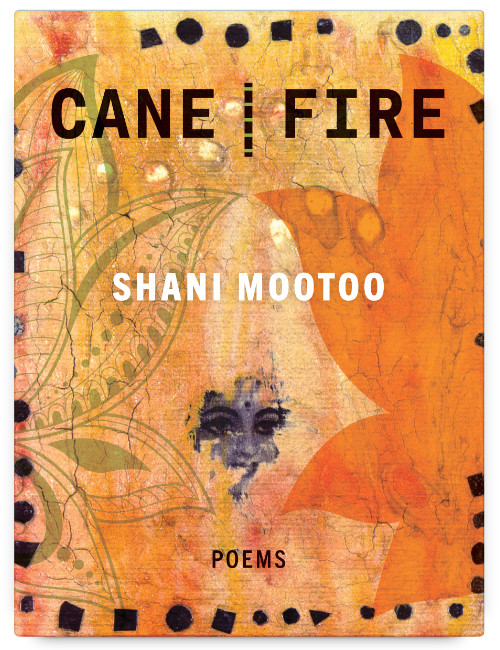
Cane | Fire by Shani Mootoo
Throughout this evocative, sensual collection, akin to a poetic memoir, past and present are in conversation with each other as the narrator moves from Ireland to San Fernando, and finally to Canada. The reinterpretations and translation of this journey and its associated family history give meaning to the present. “From the first exquisite poems to the collection’s lyrical and vulnerable culmination, Shani Mootoo undertakes a daunting and necessary vision: to extricate personal history and recast it. What emerges is bravely unruly, with viscerally felt lines that merge evocatively with Mootoo’s visual art,” writes Doyali Islam, author of heft.
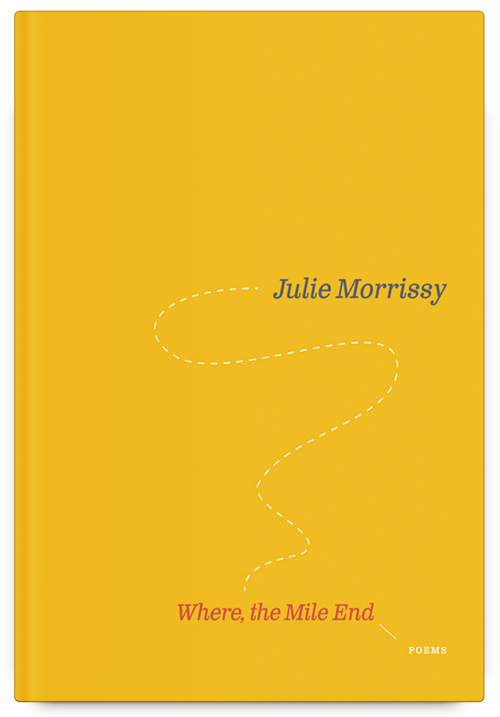
Where, the Mile End by Julie Morrissy
Where, the Mile End, by Irish poet Julie Morrissy, embodies an energetic lyricism that whips through Europe and North America with humour, curiosity and a distinct edginess. Morrissy’s lines track emotional, physical, and geographical change, as she intimately links the vitality of two continents: the snow, the streets, the sensual memories. Where, the Mile End reimagines the places we inhabit, the moments we remember, the things we long for. “Morrissy’s deftly paced, musical use of language draws us into her closely observed world where we accompany her with fascination from place to place to place,” writes Jane Urquhart, award-winning author of The Night Stages and Some Other Garden.
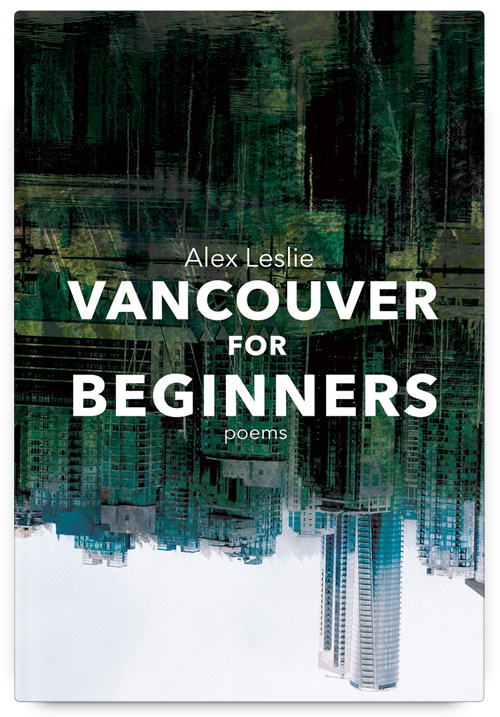
Vancouver for Beginners by Alex Leslie
In Vancouver for Beginners, the award-winning poetry collection by Alex Leslie, the nostalgia of place is dissected through the mapping of a city where readers are led past surrealist development proposals, post-apocalyptic postcards, childhood landmarks are long gone, and a developer who paces at the city’s edge, shoring it up with aquariums. In these poems, you will traverse a city lined with rivers, not streets. Memory traps and tourist traps reveal themselves, and the ocean glints, elusive, in the background. “Alex Leslie’s Vancouver is as surreal as the dream city itself. These dispatches from Vancouvers past, present, and future overflow with piercing, wry vision. Leslie casts a keen eye over short-sighted development and pans out to the wide-lens perspective of deep time,” writes Sachiko Murakami, author Get Me Out of Here.
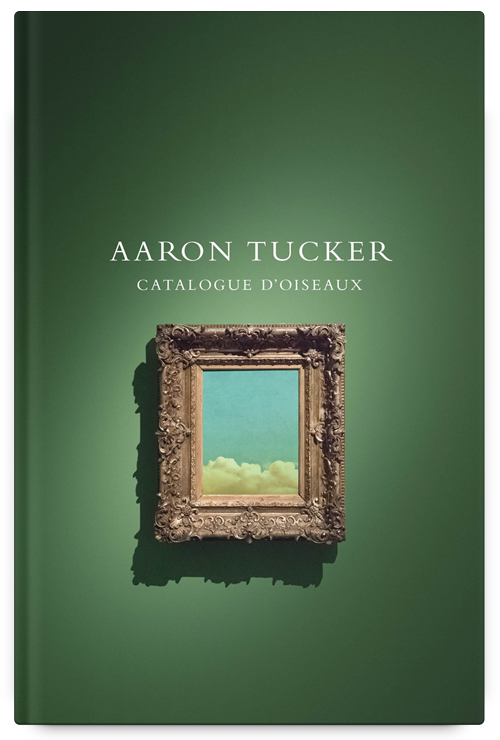
Catalogue d’oiseaux by Aaron Tucker
Catalogue d’oiseaux recounts a year in the life of a couple separated by distance, carefully documenting time spent together and apart. When reunited, they embark on travels across the globe—from Toronto to Berlin, Porto to the Yukon. This expansive poem moves sensually through small, intimate spaces and the larger world alike. “Nostalgia glows in romance, and is then activated through the vibrancy of art and the experience of bodies,” writes Klara du Plessis, author of Hell, Light, Flesh. Catalogue d’oiseaux “creates a signature gesture of compound words, aligning the protagonists in their love and languagelove.”
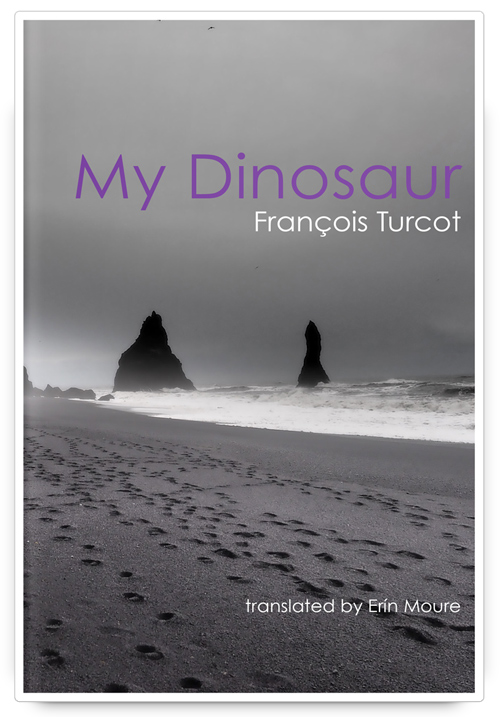
My Dinosaur by François Turcot, translated by Erín Moure
As he witnessed his own father’s growing frailty, François Turcot-one of Quebec’s most celebrated young literary voices-wrote his own dedication to his vanished father, entitled My Dinosaur. In this, Turcot pays tribute not just to the father, but also to the figure of the son, and to writing itself as the key to story, emotion, memory, and history. “Turcot explores the distance between parent and child, the nostalgia, silences, and pain, and in particular the difficulties of navigating the father-son gap. In these poems, Turcot takes the important step of asking his father, “who are you?” – an admirable effort that leads to seeing the parent as a person rather than a symbol,” writes the Montreal Review of Books.
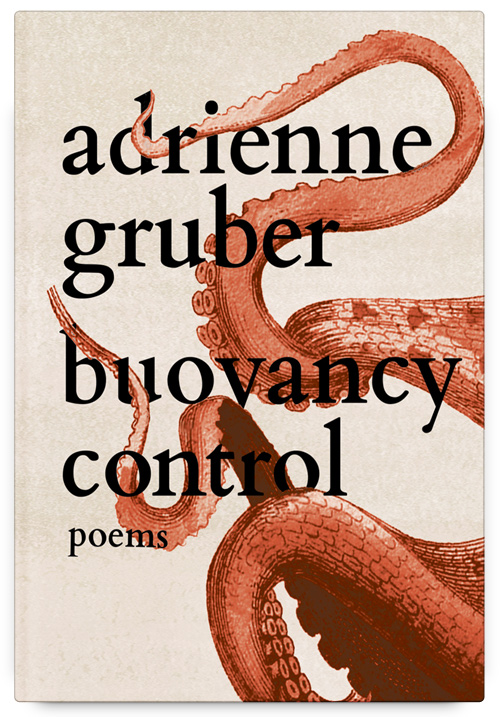
Buoyancy Control by Adrienne Gruber
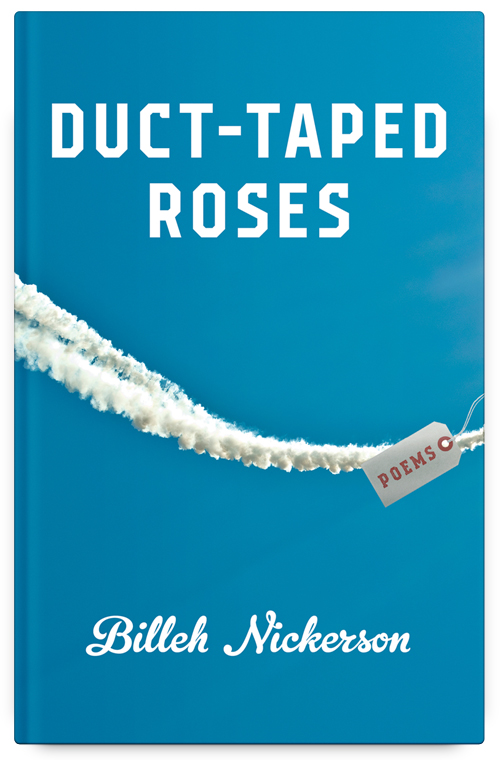
Duct-Taped Roses by Billeh Nickerson
In Duct-Taped Roses, Billeh Nickerson shares heartbreaks and offers odes and elegies in reflections on family, community, life, and loss. As a bush pilot, Nickerson’s father would duct-tape his planes to keep them flying. The poignancy of his relationship with his father is celebrated here in the long poem “Skies.” Other poems reminisce about love and the complex resiliency of gay men. Through his signature irreverence, honesty and wit, Nickerson explores what can be repaired, what must be celebrated, and what—inevitably—is lost to time. “[Nickerson’s] mind is a wonder, and lucky for us, he’s put so many wonderful thoughts from it onto these pages,” writes Heidi Greco in a review for The Miramichi Reader.

